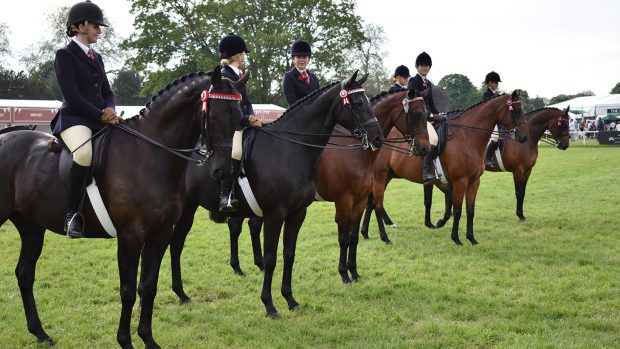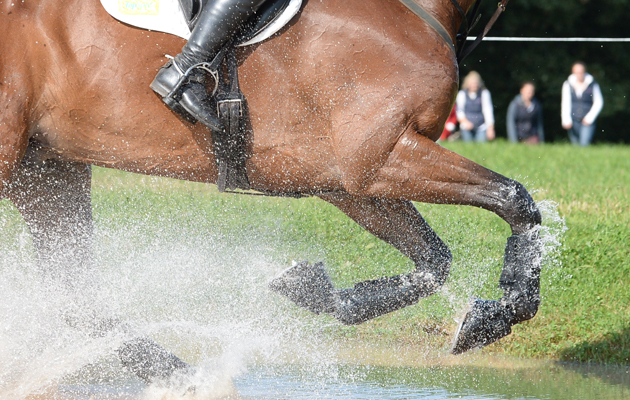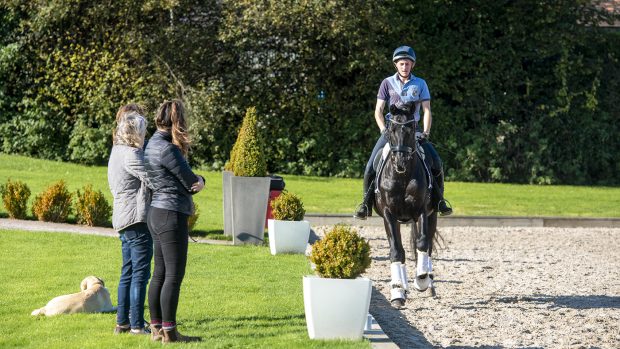With horse sport, inevitably along the way we may face setbacks — be it at home through a tough training session, a young horse that has lost its confidence, or an injury. We speak to top riders to find out just how they cope…
How do you overcome setbacks, big or small?
Maria Eilberg
“Major setbacks are quite difficult to deal with sometimes, especially if it’s your top horse and you have something happen to it.
“I had a disaster with Two Sox when he retired, and he suddenly had to be put down as he broke his leg in the field. He had been the horse I aimed for team places every year. That was a big setback.
“It definitely hit me, but I got into concentrating a bit more on my coaching and judging. In hindsight, if I hadn’t had that setback, I don’t think I would have done my ECAP Course and the UKCC Level 3. I’m now a List 2 judge. It can work in your favour if you use it in a positive way.”
Izzy Taylor
“Think about what changes you can make and try not to worry about the stuff that you can’t. Preparation, as always, is key to everything.
“Things go wrong, that’s part of the learning process so it’s very important to deal with them in the correct manor. Assess what went wrong and why. And it’s very important to be straight and honest with yourself. Once you’ve done this then it’s important to move forward and not dwell on the error. By all means learn from it and try not to repeat it, but getting hung up on it will be detrimental”.
Caroline Powell
“I have a great theory — what’s for you doesn’t go past you. If something isn’t meant to be then it’s not meant to be, and you are meant to go and do something else. When I broke my leg, we had our new house to complete so I changed my focus on to that and didn’t sit and stress that I had a broken leg. I had something else to do. It’s more about re-evaluating your focus and changing it.”
Oliver Townend
“Change the plan and go towards the new plan. The biggest problem and setback with event horses is injury or niggles and that boils down to more time, going to plan B and going from there.”
What are your tips on dealing with younger horses and overcoming issues?
Caroline Powell
“When young horses go wrong I think you need to take a step back and look at where things are going wrong. At some stage they haven’t learnt something so they aren’t understanding and the whole process isn’t working.
“I think if something does go wrong, you need to take some time out and think what the basic problem is. Sometimes it’s a case of taking 10 steps back from the bigger problem and working out what is going on before you actually tackle the main problem”.
Izzy Taylor
“Break the lesson down into segments and keep repeating the first segment until the horse understands and comprehends what you ask of him. Then, and only then, do you move on.”
Like this? You might also enjoy reading these:
Bursting into song — and 5 other ways to beat riding nerves
10 tips to banish competition riding nerves
Maria Eilberg
“Always prioritise what is going on at the time. In my experience horses are always very genuine and they’ll try and do it if they can, so I always try and work out if they are OK to start with.
“I want to make sure they are physically OK. They might have had something that has frightened them, so mentally they might be a little bit backward. But normally I find if a horse suddenly can’t do something that it’s always done, then there is something wrong with it physically.
“So having the horse physically checked is the first thing and if you’ve ticked all the boxes and they seem fine physically, then you need to go to what the horse can cope with and keep progressing step-by-step, and forget what it has done in the past. That way you’ll get a bit of satisfaction again — it’s about baby steps”.





